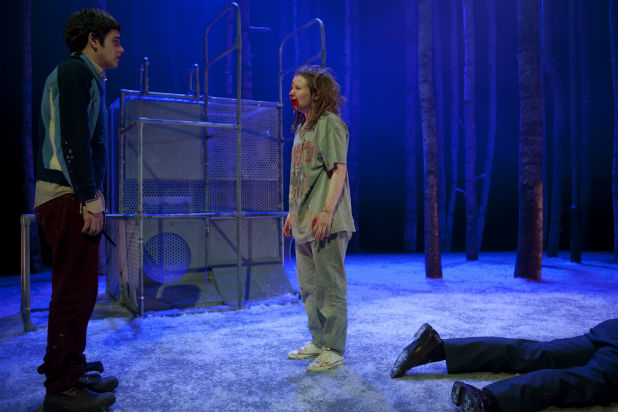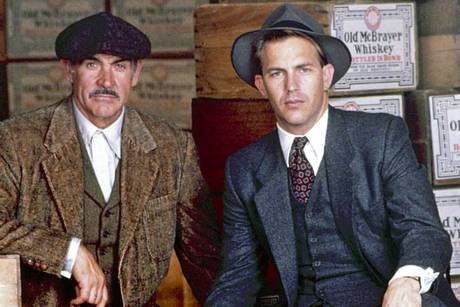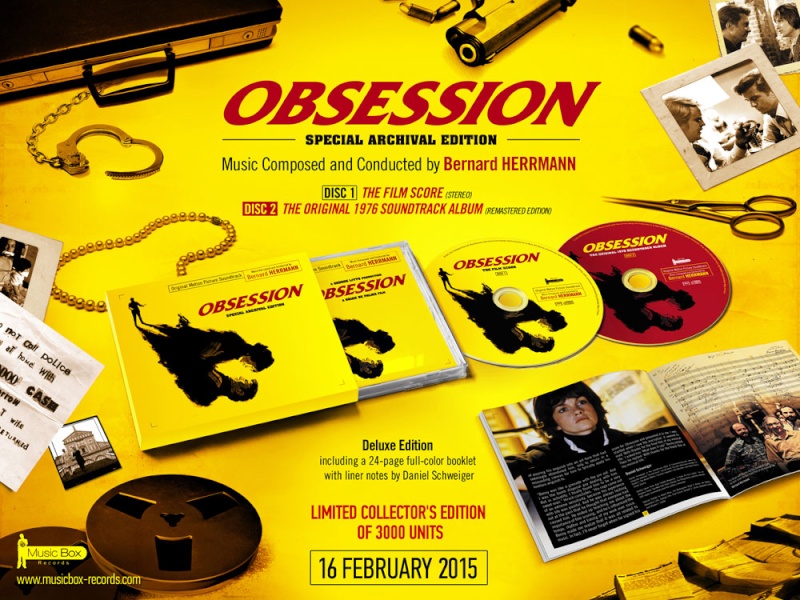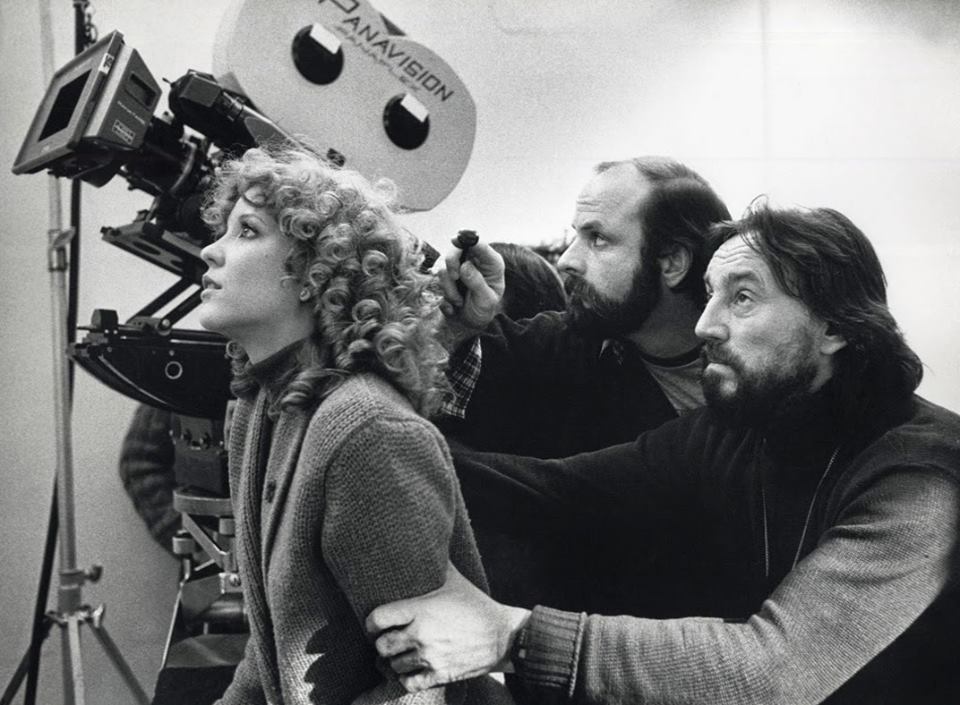KOEPP ON 'SNAKE EYES' ENDING
"IT DIDN'T END UP THAT MUCH DIFFERENT" - ALSO, 'MISSION: IMPOSSIBLE' David Koepp
David Koepp has a new movie in theaters, reteaming with
Johnny Depp for the action/comedy
Mortdecai (if this project seems wildly different from Koepp's previous directorial outings, it may be because it is not a project instigated nor written by Koepp himself). Koepp talked with
Den Of Geek's Wil Jones, who asked him about the altered ending for
Brian De Palma's
Snake Eyes. "It had a different ending, yep," Koepp tells Jones. "And I’m trying to remember what the original ending was… [
Gary Sinise’s character] didn’t die,
Nic Cage’s character saved him at the end. It’s not uncommon to change things. It didn’t end up that much different, it’s just that they wanted the bad guy to get his comeuppance. So he did."
Interesting... in the past, all the talk about the ending has seemed to center on the idea of the big wave at the end, wiping things away like the fury of God. The fact that Koepp was the screenwriter, and they asked him to change it up, and that he remembers the big focus being on the bad guy getting his comeuppance, suggests that perhaps to test audiences, they wanted to see the bad guy get it better than he did with the wave.
In 2002, four years after Snake Eyes played in theaters, I was in attendance as De Palma told an audience at his retrospective at the Pompidou in Paris that the original idea was that a divine hand of judgement was delivering its wrath down on "Sin City." De Palma told the French audience, "They don't believe in that in America," referring to all the flack he got from test screenings and studio heads that the ending "just didn't work." De Palma finally decided to change Snake Eyes' ending of his own accord (he reportedly did not want the alternate ending included on the DVD because he did not want people to think that he was forced to change it), and he has claimed that he likes the new ending better. The tidal wave still exists in the final film, but does not play as big a part in the climactic happenings as De Palma had originally planned.
Click here to read Carla Gugino's recollections of the original ending, as well as a report from someone who has actually seen a version of the original ending, but with no sound effects or music soundtrack.
Back to the new Koepp interview-- Jones follows up his question by asking Koepp how he reacts to having to make changes such as that to his scripts. "When I write for someone else…," replies Koepp, "I think the [script] reaches it’s best state around the third draft. And I think after the third draft you kind of need to say goodbye, because it’s going to become something else. You can fight for things you believe in, but the number of fights screenwriters have won over everyone else can be counted on one hand. I always try to look at it like a writing experience; I get the script to the state where I’m really happy with it. And then I say bye, and it’s going to go off and make the presence it makes in life like a child! It’ll make mistakes and it’ll be a different thing, it won’t be yours."
Earlier in the interview, Jones asks Koepp about making Jim Phelps a traitor in De Palma's Mission: Impossible, as well as creating the character Ethan Hunt for Tom Cruise to play. "Tom was involved first," Koepp tells Jones. "He was interested in doing it, and he was producing it. And then Brian [De Palma] called me and said why don’t you take a crack at it. You have to consider who’s in it, and then make it work.
"The essential problem was Tom Cruise was the biggest star on the planet, and [the original TV show] was an ensemble that tilts towards no-one. I’d never viewed the TV show as sacrosanct. We had to acknowledge who our cast was. So I can’t remember whose idea it was, either De Palma or Steve Zaillian said let’s start by killing the team, lets just get rid of them. Because you had to work out how you get this ensemble piece into a star vehicle. So we killed everybody, and we were feeling very cheeky, and decided we’re going to do want we want, we’ll kill people, we’ll make the good guy the bad guy, and added in the new recruits. And I think it worked out well."
 Martin Frawley, singer/guitarist from the band Twerps, was asked by Under The Radar's Mark Redfern which well-known filmmaker would he most like to direct one of Twerps' music videos. Frawley responded, "Spike Jonze so we could do kickflips together. Or actually probably Brian De Palma, he has made some of my fave films of all time. I would have said Richard Linklater but his last score on Boyhood was cringe-worthy."
Martin Frawley, singer/guitarist from the band Twerps, was asked by Under The Radar's Mark Redfern which well-known filmmaker would he most like to direct one of Twerps' music videos. Frawley responded, "Spike Jonze so we could do kickflips together. Or actually probably Brian De Palma, he has made some of my fave films of all time. I would have said Richard Linklater but his last score on Boyhood was cringe-worthy."




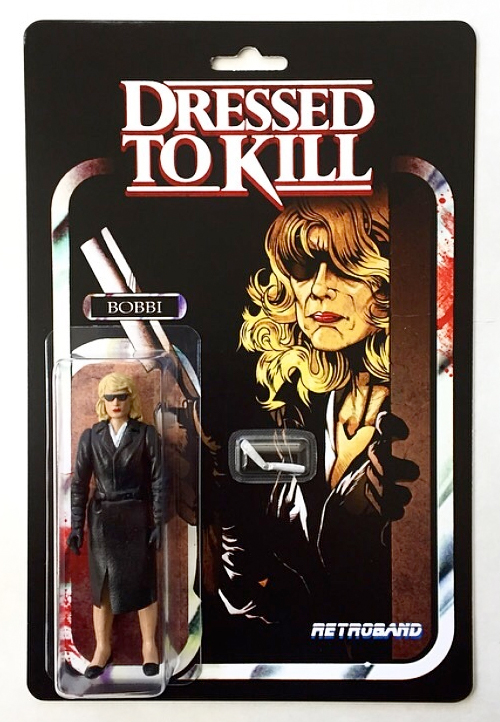 Aaron Moreno, aka Retroband, and Gabe Hernandez created an action figure of Bobbi, the killer from Brian De Palma's Dressed To Kill. The 4" figure, which comes with a toy straight razor, was made available today, but quickly sold out. According to
Aaron Moreno, aka Retroband, and Gabe Hernandez created an action figure of Bobbi, the killer from Brian De Palma's Dressed To Kill. The 4" figure, which comes with a toy straight razor, was made available today, but quickly sold out. According to  David Koepp has a new movie in theaters, reteaming with Johnny Depp for the action/comedy Mortdecai (if this project seems wildly different from Koepp's previous directorial outings, it may be because it is not a project instigated nor written by Koepp himself). Koepp talked with
David Koepp has a new movie in theaters, reteaming with Johnny Depp for the action/comedy Mortdecai (if this project seems wildly different from Koepp's previous directorial outings, it may be because it is not a project instigated nor written by Koepp himself). Koepp talked with 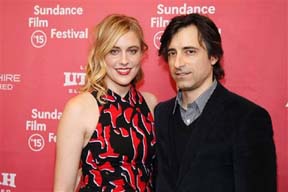 Noah Baumbach's Mistress America had its world premiere at Sundance Saturday. The film, co-written by and starring Greta Gerwig, was well-received by a "lively, laughing audience," according to
Noah Baumbach's Mistress America had its world premiere at Sundance Saturday. The film, co-written by and starring Greta Gerwig, was well-received by a "lively, laughing audience," according to 